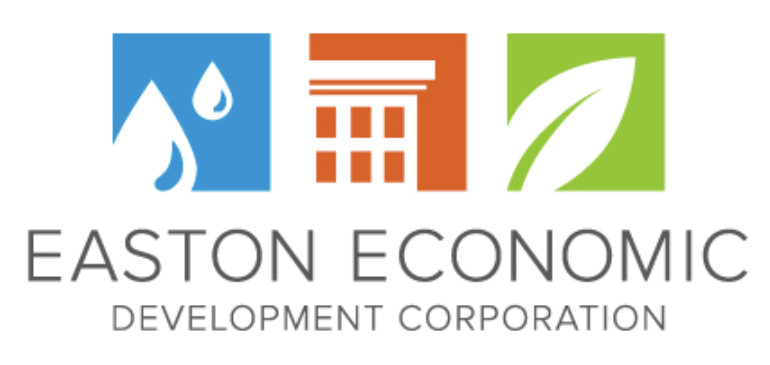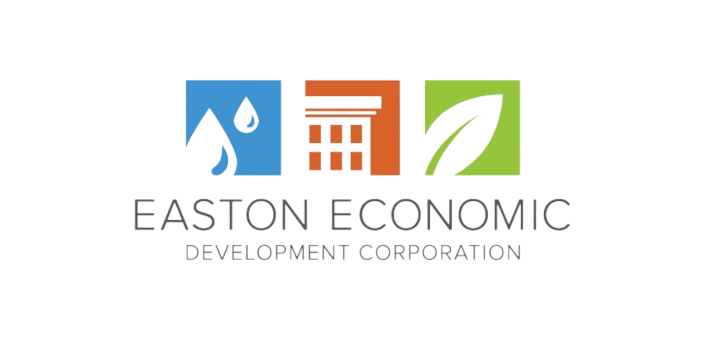Alan Lowrey was recently appointed Easton’s new Chief of Police. Even though Chief Lowrey has been an Easton resident for the past 11 years, he worked at the Arlington County Police Department in Virginia from 1991 to 1998 and then again from 2001 until his recent appointment. In between times, he received a law degree and worked as an associate attorney in a litigation firm in DC.
EEDC: Easton is not new to you. So how has it been working in the town where you live?
Chief Alan Lowrey (AL): Because I was working so much in Virginia and spending so many hours commuting, the only time I was around Easton was attending my kid’s sports, being at home, and church. I couldn’t be civically involved. So the significant change has been learning about the town from a whole different level. When I was interviewing, I watched all the recorded council meetings and thought, ‘I didn’t know that was going on!’ For instance, I learned there will be a 120-apartment development going up at Elliott and Matthewstown Rd. and that’s certainly important as police chief because one thought I had was that it’s workforce type housing suitable for young officers coming in. So even though you might ask: does that really impact the police? Yes, really, everything impacts us.
EEDC: That’s true. I was thinking about town events, festivals, meetings, things like that, but everything happening in town does impact the police force in one way or another.
AL: It’s strange because even though I’ve been here 11 years, it’s a whole new way of living. You’re involved in what’s going on and meeting different people that I would never be hanging out with in my previous day-to-day life. Part of this is being aware of everyone’s interests.
I used to teach this to new officers in my previous position. ‘Your job,’ I would tell them, ‘is all about balancing interests, and there are 360 degrees of that.’ I would give an example of a coffee shop calling in a complaint about a homeless man outside their business, making the customers uncomfortable. I would then ask the new officers to consider the different interests: the shopkeeper who wants a successful business, the customer who is looking forward to having a cup of coffee to begin their day, and the homeless man, who needs money, perhaps to buy food.
EEDC: Even though we like to think Easton is different from Arlington, it’s not, right? These issues are the same everywhere.
AL: It’s everywhere. Human nature doesn’t stop at any jurisdictional boundary, right? So we talk about that. And how do we uphold the laws without stepping on the other person’s liberty with whom they come in contact?
EEDC: We’ve talked about similarities; what about differences. Is this very different from your experience with Arlington?
AL: It is different because there is more support for law enforcement from the community, the town council, the town manager, and the mayor. I’ve been walking around with my deputy chief and meeting people.
Then, of course, there is the ability for me to be available to handle any issues within a really short time since I no longer have a two-plus hour commute. You don’t even realize the level of stress and fatigue until you’re no longer doing it.
EEDC: Has anything surprised you?
AL: What has been sort of a surprise is how pleasant it has been with me coming in as an outsider where there are people inside the department that have also wanted this job. I’ve lived through having outside chiefs and inside chiefs, so it’s a scenario I have been involved with in the past.
I’ve been grateful for the officers and command staff’s acceptance and their willingness to work for the common goal. It could have been difficult, but people have been pretty welcoming. But then again, this is a professional police department. They care very deeply about the work that they’re doing.
EEDC: How’s the staffing issue going? Is the PD having as much trouble as the rest of the businesses?
AL: We’re authorized to be at 48 people, but we have 42 employees. Of those 42, we have three that are currently not functional because they’re either in training or have medical issues that keep them from being functional right now. So we’re really at 39 that are carrying the load. The patrol squads bear the brunt since they’re the ones who answer calls, and they’re working a lot of overtime. In 2021 our bike patrol people were reassigned into patrol, as were our narcotics investigators and some detectives, just to keep that day-to-day operation afloat.
On a positive note, I was looking at some numbers this morning. And the shores numbers for overdoses and fatal overdoses is decreased from last year. That’s great, and we need to stay on a multi-prong approach. It’s not only about education and access to resources but also holding people accountable who are bringing and distributing these drugs into the community. It has cost lives. There is no other way around it.
So yes, staffing is still an issue, and it’s an issue everywhere, and it needs attention. We’re hoping to get six new officers into the July Academy training program, and we have a few people going through backgrounds checks, but all local police departments are fighting for the same pool of people.
EEDC: Then, of course, we locally have to consider the availability of affordable housing.
AL: We do. It’s expensive to live here and hard to find affordable housing for the workforce in Easton. And we’re competing against other counties that are starting their officer’s annual salaries at almost $8,000 more. So all of us are competing for the very few people that want to be police officers. So if you’re a young person coming out of school, you’re probably asking should I work here or there and make $8,000 more?
EEDC: What are your thoughts on a community-based Police Department?
AL: It’s always interesting when someone asks that question because I want to ask what does that mean to you? For some people, that may mean doing a whole bunch of activities in the community. For others, it means they want the same officer assigned to their area, someone they can have eye contact with and get to know.
When I was hired for this position, it was the mayor’s priority that the Chief be well known to the public. I would agree with that, especially in a jurisdiction and police force of our size. It does a lot to manage crime and community expectations when people aren’t anonymous on both sides. So we’ve been working on increased visibility everywhere and not just downtown.
You know, in my career, I’ve worked in neighborhoods where there’s been drug dealing. And it’s a big difference when you’re doing a foot patrol, and somebody runs from you. And you know, that’s Billy. And you’re thinking, ‘Billy, you can run, but I know where you live. I know who you are.’ Anonymity doesn’t exist when you know the area you’re patrolling. That can solve some problems in and of itself. We actually all want the same thing. We want to live in a community where we feel like we can find success and be safe.
EEDC: What would you want others to know about the Police Department?
AL: Many of our officers grew up in this area, so It’s incumbent upon us to foster the next generation of officers. But if you allow the national media narrative to drive the perception of the job, then who will want to do that?
I’ve asked friends: how often do you think police officers shoot their guns. Their response: all the time, right? The truth is that, unless you’re working in a very bad neighborhood, where you’re constantly in armed encounters with people shooting at you, the vast majority, upward of 90% of officers, will never fire their gun in their whole career, outside of training. But you would not know that if you went by what the media says. The reality is that officers, on a day-to-day basis, do a very good job of verbally dealing with people.
EEDC: Want to share your immediate goals for Easton?
AL: My main priority for this first month has been meeting one on one with all my staff. I’ve been able to do some cost-free things to help my officers, like giving them some time to work out and getting a water cooler. They’re small things but important. The other part has been recruiting and figuring out benefits and how to do that in a fiscally responsible way.
Next is to work on our public engagement, and a priority for me is also to increase diversity within our workforce. All of it goes hand in hand with recruiting and retention because I hope the next generation of officers are from within the town. I want to reach into communities and show how the police department is a viable career and profession and place to work, especially for someone who wants to be part of the solution to create a safe place for people to grow up and live in.
EEDC: The last question is really one of curiosity. You were a police officer, then got your law degree, then went back to law enforcement. What made you do that?
AL: What I loved about being a lawyer was that I was around a lot of very smart and driven people who had a calling working in law. I was working on stuff that I loved because I’m curious. I loved that part. But I recognized one day that I was just doing this for the money. It wasn’t fulfilling, and with that came the realization that my call was to serve my community. I’m still a member of the bar in Virginia and DC, inactive, but I could reactivate. That’s what I thought I’d do when I retired from Arlington. I didn’t think I’d be in law enforcement as my second career. But then this opportunity presented itself, and I’m loving it.
Know anyone interesting in Easton? We’d love to hear their story! Email

